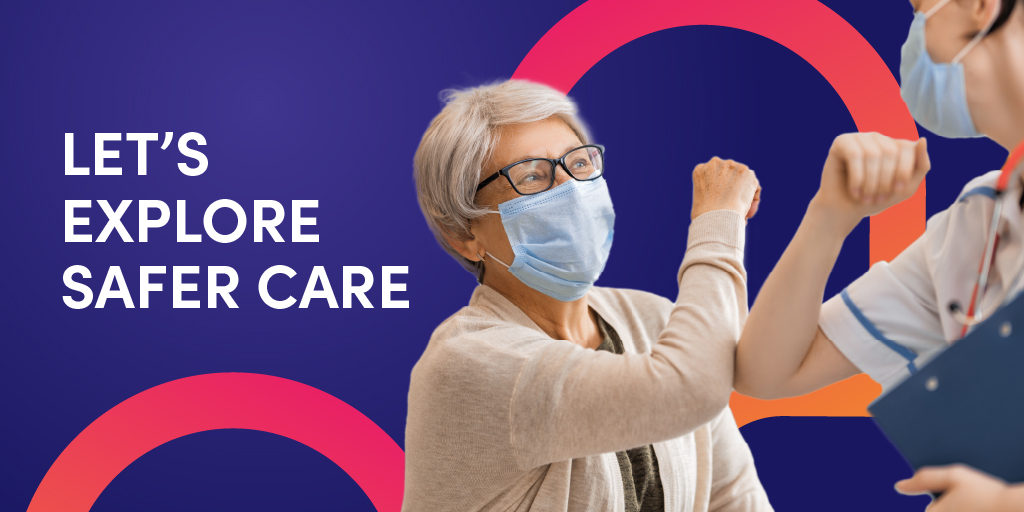Interview with Kason Chan – Canadian Patient Safety Week 2023
Interview with Kason Chan – Canadian Patient Safety Week 2023

What does patient safety mean to you?
As healthcare providers, we are guided by several core ethical principles. One of our main ethical principles that we adhere to is the principle of non-maleficence – the overriding obligation that we must protect our patients from harm in the course of providing care. “First do no harm”, as it is oft said.
Naturally, patient safety forms of core of this principle. Patient safety means practicing in a manner that always considers the potential unintended consequences of your actions. It means being analytical and mindful of your work and acting in the best interest of the patient in keeping them safe.
What differentiates CATC from other service providers when it comes to patient and medication safety?
At CATC we have a supportive team-based approach in providing patient care. The pharmacists, pharmacy assistants, nurses, support staff, and physicians all communicate closely and are always supportive of one another as we work towards a common goal. While other pharmacies may not always have access to the patient’s MRPs, we are in close contact with them. Should a problem related to medications arise, we are in a position to quickly solve the issue to ensure patients are cared for and unharmed.
There are also continuous quality improvement (CQI) initiatives from CATC’s Quality and Continuous Improvement team for the clinic and pharmacy. The internal reporting system allows us to document, analyze, learn and share learning throughout the organization. Every report act as a learning opportunity for continual improvements in patient safety.
What do you think is the biggest challenge for maintaining the highest standard of medication safety?
We are all human and that cannot be changed.
While you can take steps to reduce errors through rigorous policies and procedures, human imperfection will inevitably appear. Education, training, rules, policies, and procedures are all important, but they are considered to have low leverage in terms of effecting lasting change. After all, they all rely on humans being perfect 100% of the time. These strategies are considered a persons-based approach to medication safety.
The most effective controls involve forcing functions, constraints, and automation or computerization. It is a way of taking out the flawed human factor of reliance on memory and vigilance. An example would be automated and scanning technologies. This is a systems-based approach to medication safety.
Maintaining patient safety standards involves both persons-based and systems-based strategies. The challenge is that implementing new technology can present a costly barrier, and forcing constraints can often be difficult to adapt.
What role do our patients play in the safe administration of medication?
I believe patients are provided the best care when they work collaboratively with their healthcare providers. Patients play an important role in helping us provide safe care to them by being informed and engaged. If something does not look or feel right, let us know so that we can investigate.
Being an active participant in your own health is really important! Keeping appointments, following up regularly with your provider, doing blood and lab work as requested, keeping a list of all your medications handy and up-to-date, and informing us of any health changes such as medical conditions and allergies when they appear would provide us with as much information as possible in the course of decision-making and, in turn, lead to better and safer outcomes.
What is your message to anyone who might be looking for help for themselves or someone they care about? Why should they choose us?
Addiction affects people from all walks of life and people are not defined by their drug use. While stigma still unfortunately exists which can deter people from seeking care, know that there is help available for those who are contemplating change or feel ready to seek it. There are treatment options available that can be potentially lifesaving and help patients regain control of their lives.
If you or someone you care about is struggling, at CATC you will find dedicated, hardworking, empathetic, judgment-free and knowledgeable care providers. We take a team-based approach and work closely for you to make sure you are taken care of. We are committed to providing support throughout your journey to recovery.
Thanks for sharing insights into the importance of medication safety in your work, Kason! Happy Canadian Patient Safety Week!
Hear more from other team members
Read our interview with Rebaa Ali-Sherif, Coordinator for our new Clinic Peer Quality & Compliance Program.
Read our interview with Marissa Wells, a participant in our new Clinic Peer Quality & Compliance Program
Read our interview with Kylie Cordick, a member of our Quality & Continuous Improvement team.